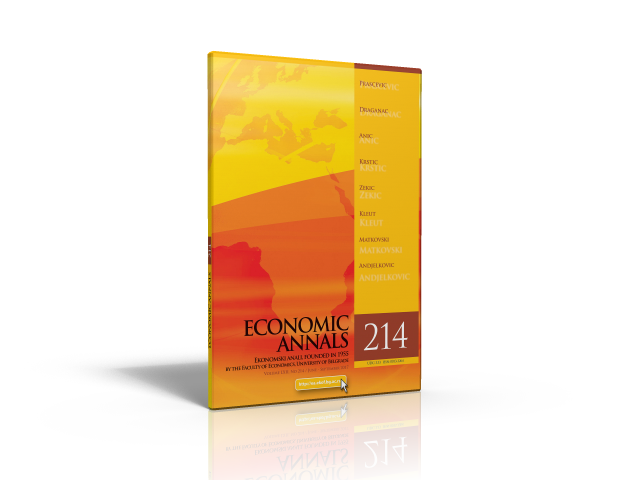POLITICAL ECONOMY OF MISUSING INCOME DISTRIBUTION IN THE ELECTORAL PROCESS – BIASED PLURALISM APPROACH
##plugins.themes.bootstrap3.article.main##
##plugins.themes.bootstrap3.article.sidebar##
Aleksandra Praščević
Abstract
This paper examines the consequences of distribution of income on election results in conditions of biased pluralism and a small-scale electorate, when the results of the democratic electoral process are compromised due to electoral corruption. The paper discusses the most important concepts of political economy and political theory connected to achieving electoral victory through distribution and misuse of economic resources, focusing on identifying the conditions under which a democratic political system serves organized interest groups and not the majority; i.e., biased pluralism. Despite the formal equality of all voters, there are significant differences in their actual impact on election results. The democratic election process is put into question by the fact that the electorate is small and candidates have access to income that can be used to buy off ‘privileged’ voters through discretionary allocation of funds and the economic results generated by such distribution. Faced with the corrupt practice of the incumbent, the opposition candidate is driven to a similar position to gain the support of ‘privileged ’ voters and win the election for the opposition. The economic and political result is that the free vote and political competition are compromised, resulting in a political hybrid, the semiauthoritarian regime. This paper provides a mathematical optimization model in which a hierarchically based organization is used as an approximation of society. In the model, differences in the position of members of the organization are similar to differences between voters in the electorate. The particle swarm optimization (PSO) method is used to calculate the amount of electoral bribes. The paper also uses game theory to provide an example of voting for the person who will manage the organization. The formal game between the incumbent and the opposition candidate is presented with a discussion of the various results of the game.
##plugins.themes.bootstrap3.article.details##
Keywords
biased pluralism, electoral process, semi-consolidated democracies, particle swarm optimization, game theory
JEL Classification
P26, P27, E02
Issue
Section
Articles
How to Cite
Praščević, A. (2017). POLITICAL ECONOMY OF MISUSING INCOME DISTRIBUTION IN THE ELECTORAL PROCESS – BIASED PLURALISM APPROACH. Economic Annals, 62(214), 7-44. https://doi.org/10.2298/EKA1714007P
How to Cite
Praščević, A. (2017). POLITICAL ECONOMY OF MISUSING INCOME DISTRIBUTION IN THE ELECTORAL PROCESS – BIASED PLURALISM APPROACH. Economic Annals, 62(214), 7-44. https://doi.org/10.2298/EKA1714007P

